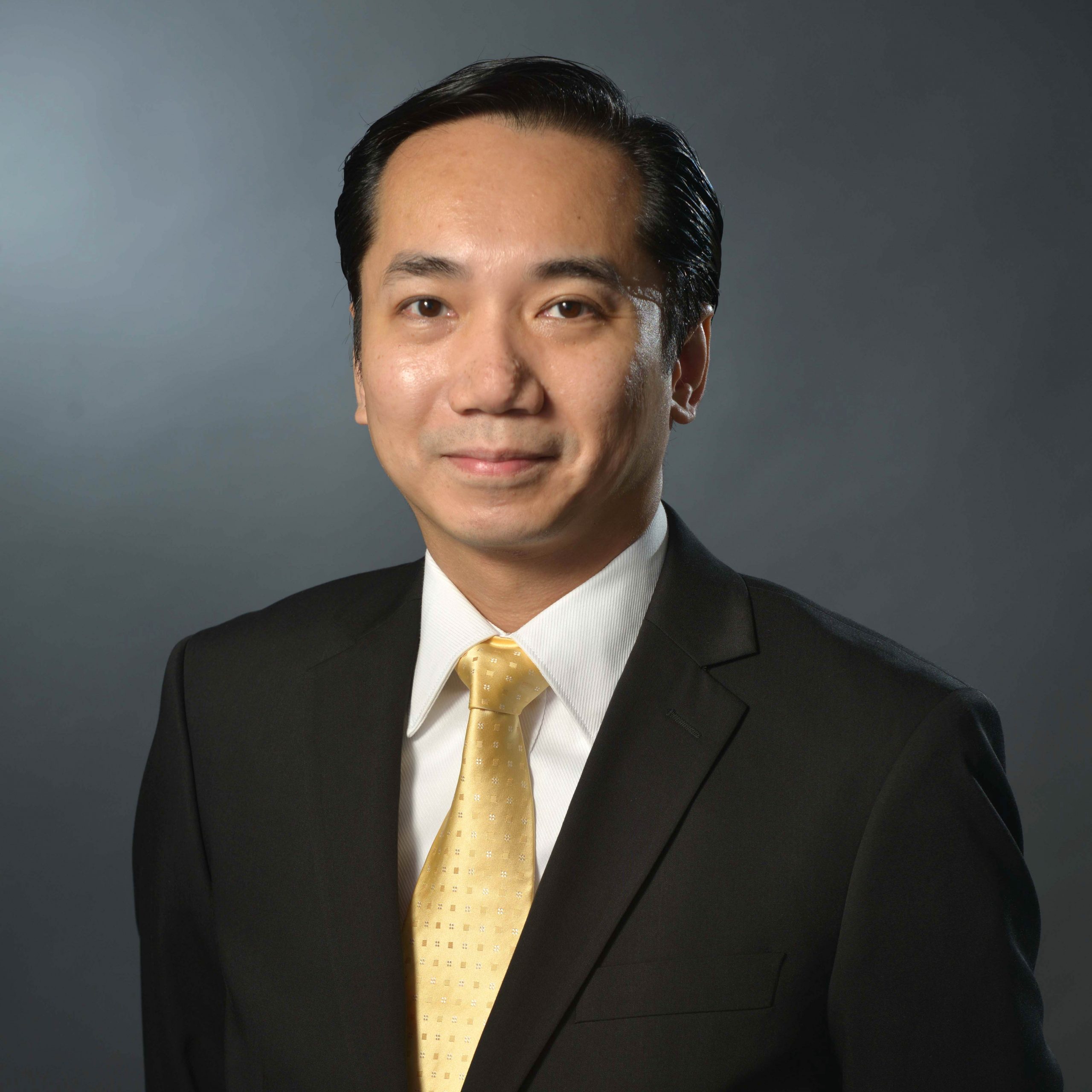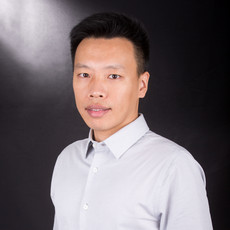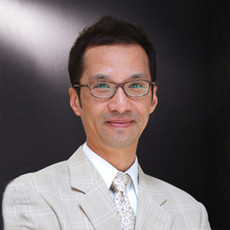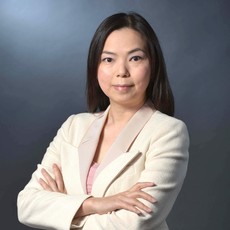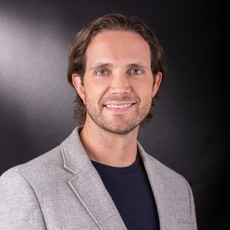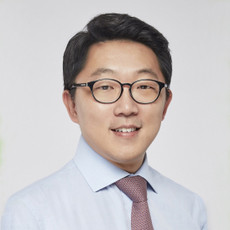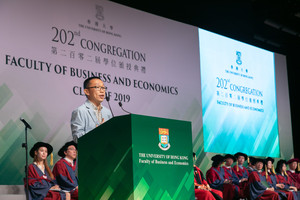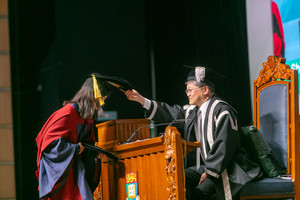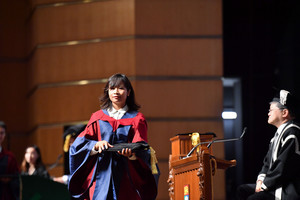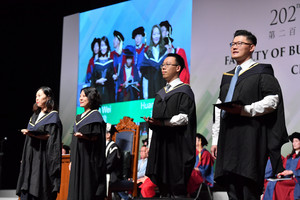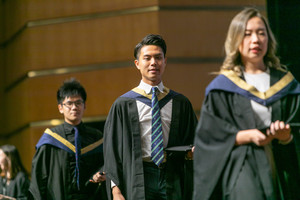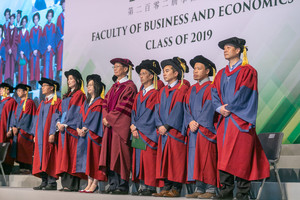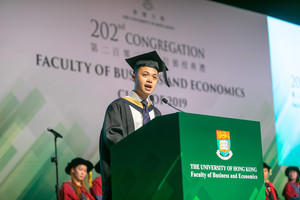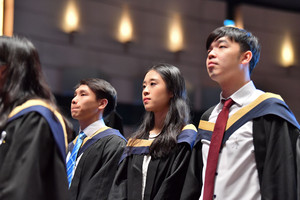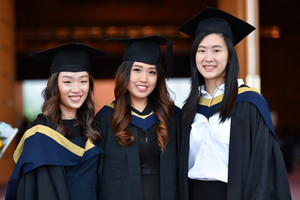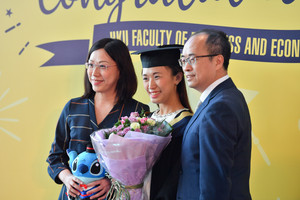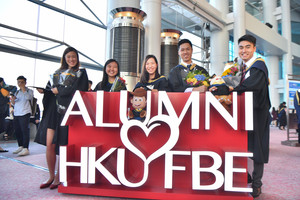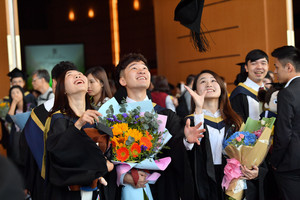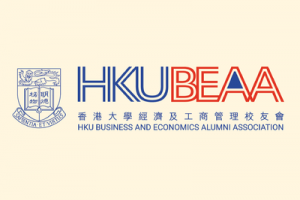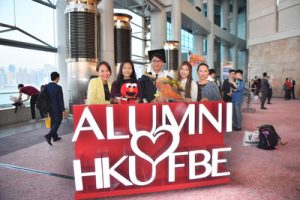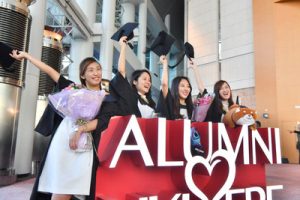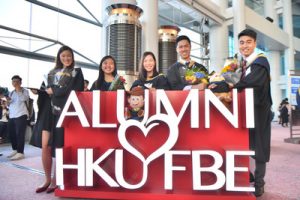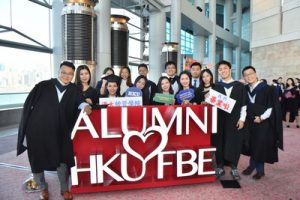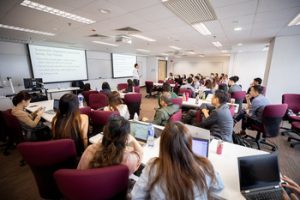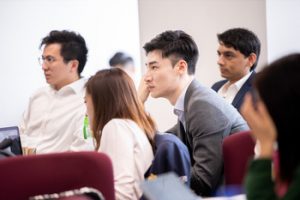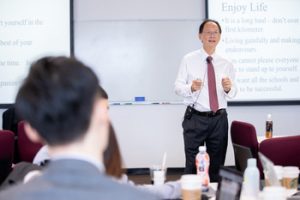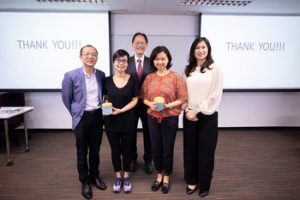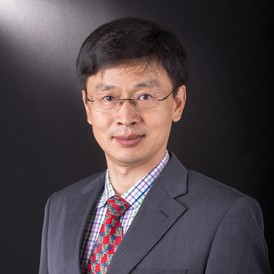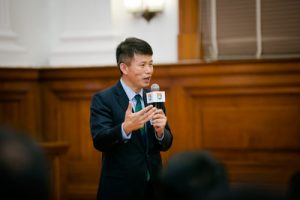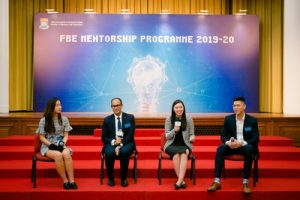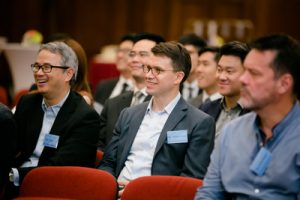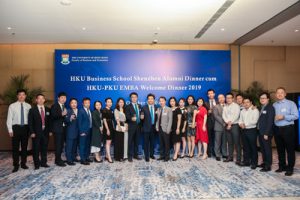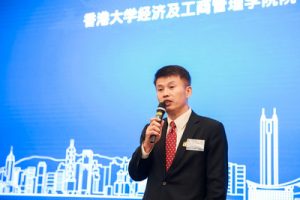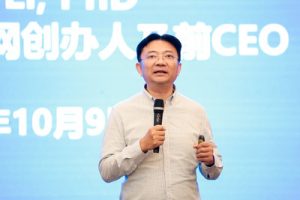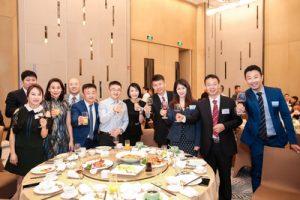Former CEO and current HKU professor Philip Chen has met his fair share of challenges throughout his 40-year career. The MBA students in his new elective at the University of Hong Kong learn what used to keep him up at night, what to do in a crisis and how to win the hearts and minds of employees.
The contemporary business environment is increasingly complex, interconnected and constantly changing. Preparing the business leaders of the future is not an easy task. After mastering the basics in their foundational business courses, students increasingly want to hone their leadership skills in a practical and demanding way. Teaching leadership, however, requires special experience. MBA students value academic smarts while also demanding authenticity. They crave openness and frank feedback from people who have been there before. A recent course offered by Prof. Philip Chen, a resourceful leader himself who are passionate about pedagogy, caters to students’ needs on all counts.
Prof. Philip Chen’s experience includes leading organisations such as Cathay Pacific Airways, Swire Pacific and Hang Lung Group. The next step of his career included designing the new experiential MBA elective class “Insights and Lessons – Reflections of a CEO”, blending practical business advice with theoretical models derived from his decades of first-hand experience. His insistence on the importance of integrity ring true for the next generation, as well, a very clear sign that the next generation demands moral and ethical clarity from their leaders. “His words on how the core values of integrity, honesty and courage shapes a great leader definitely resonates with us”, noted his student Shubha Mani.
A chance to hear from the front lines
“Everything is beautiful at 39,000 feet. Go to the actual ground to have a look”.
This is the advice that MBA student Ada Kung most treasured from Prof. Chen’s class. “His model of strategic considerations stimulated us to think from a holistic view, yet his impactful experiential learning approach impacted us to understand the importance of paying attention to the finer details.”
The class is notable for Prof. Chen’s use of story-telling to illustrate his points. “Philip Chen’s CEO class was one of the most memorable courses I’ve ever taken. It was fascinating to go through cases and hear management stories from the source himself which just made everything stick that much better”, says student Chris Joonseop Kim. Through these insights and anecdotes from his career, students have the chance to apply the practical skills they learned from Professor Chen to real issues such as the importance of winning hearts and minds in managing change; developing and employing critical communications skills; and the pros and cons of different management styles.
“Philip brought so much experience to his course it felt like there wasn’t a situation as CEO he hadn’t heard about but at the same time was humble enough to field our questions and engage us as an audience,” notes student Paul Howard.
Learning by doing
“He believes in learning by doing and this can be seen in his teaching style”, Shubha Mani relates.
Prof. Chen’s unique management experience that combines different industry sectors and spans across the globe becomes excellent teaching materials that cannot be duplicated elsewhere. Over the years, he has weathered more than a few crises. To underscore the difficulty of navigating through challenging times, and the importance of a solid crisis preparation plan, Prof. Chen developed a crisis management drill this fall in which students were placed in unfamiliar situations and tasked to react to them in real time, all while being videotaped by a professional film crew. “During that exercise I learned not only how I behaved in a crisis as a leader, but also how my actions were portrayed outside the team. This class was about teaching us practical lessons about life and about the professional world, something that is unfortunately not given enough attention in education today,” says student Aadil Chitalwala.
Prof. Chen also invited fellow CEOs to supplement the course with their own experiences as leaders of large and complex organizations. Diana Cesar, HSBC Hong Kong CEO and Christine Ip, CEO of United Overseas Bank (UOB) Greater China, presented and helped judge the students’ final presentations, by asking tough questions and providing valuable advice and feedback.
Students appreciate this combination of theory and practical application. “For aspiring leaders, to have a seasoned senior executive share his successes and challenges over their illustrious career is indispensable. This is not something that can be found in traditional leadership courses, or even reading through most of leadership literature. Equally importantly, in addition to industry insights, during the class students will be put in the shoes of senior management and will be asked to act to the best of their ability. Practical courses like this is what can narrow the gap between what employers are looking for and what students are learning in the classroom,” says an MBA student.
A master of change management
Throughout his eminent career, the hallmark of Prof. Chen’s leadership is his ability to implement change, a notoriously difficult feat to accomplish and to master even as a seasoned leader. Prof. Chen speaks honestly about the challenge, which he calls a lonely one. He reveals that while many people might not be able to imagine the road ahead, eventually the “pride of knowing that you did something right will far exceed the fact that other people couldn’t understand what you were putting in motion,” says Prof. Chen.
Prof. Chen highlights change management issues with his “Six Attributes Model”. The paradigm looks at critical issues such as understanding the dominant coalitions in companies; and the importance of taking time when reforming to get to the root cause of organisational malaise.
He is widely applauded for guiding Cathay’s consolidation of its share of the mainland China market with the acquisition of Dragonair. However, despite his famed approach to large mergers and acquisitions, Prof. Chen insists that small changes can also have large impact. Prof. Chen relates that there does not always have to be a fundamental sweeping reform, and that it’s possible to implement small actions that have outsized results. While working at Cathay, Prof. Chen tapped his network to bring Häagen-Dazs ice cream to inflight service, in one fell swoop introducing the legendary US brand to both Cathay and Hong Kong. To keep costs low, Prof. Chen asked for a smaller cup and bargained for a significantly cheaper price. “Nobody talked about the check-in, the airport security, the inflight meal or the baggage delivery after a trip. Everybody recalled the Häagen-Dazs ice cream,” says Prof. Chen.
Philip Chen has proven himself to be a Hong Kong legend both inside and outside the classroom. “Never had I anticipated that I would get the opportunity to learn business and life skills in one of my classes. Prof. Chen has accomplished what few in the professional world have ever achieved,” says Aadil Chitalwala. For the fortunate students in his class, this extraordinary experience is sure to be a highlight of their MBA journey.
